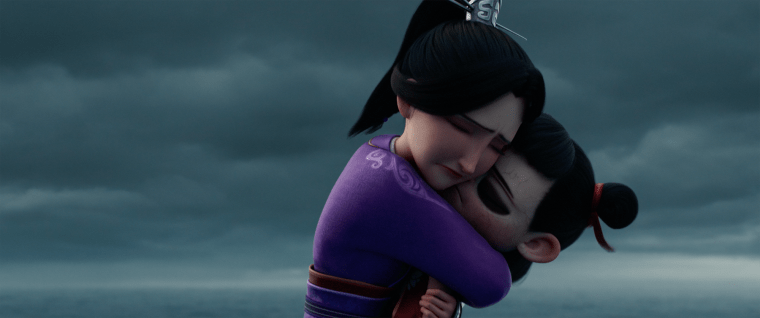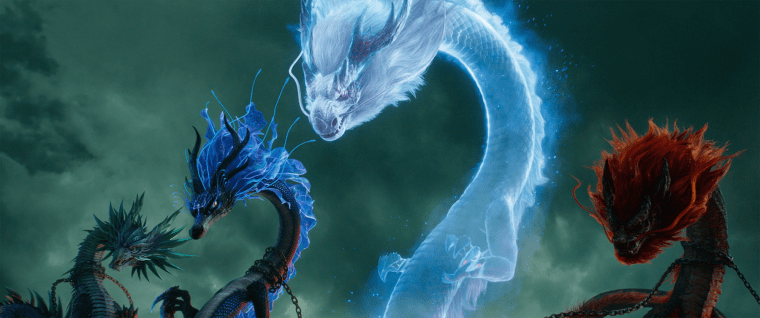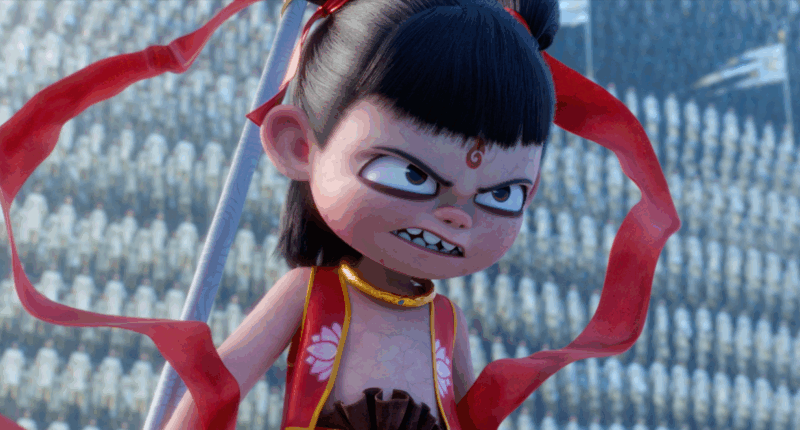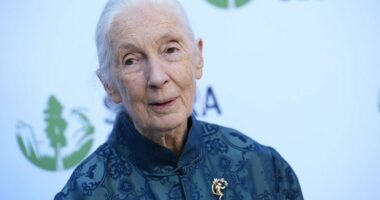Share this @internewscast.com
HONG KONG — The Chinese animated hit “Ne Zha II,” which stands as the highest-grossing animated film globally, is now available in the U.S. with English dubbing, featuring the voice of Michelle Yeoh.
This film, rooted in Chinese mythology, launched in over 2,500 theaters across the United States on Friday. It joins the ranks of other successful animations celebrating Asian culture, such as Netflix’s recent popular film “KPop Demon Hunters.”
As a sequel to the 2019 hit movie, “Ne Zha II” follows the tale of Ne Zha, a child demigod who fights against his inherent mischievous nature. He decides to use his magical abilities and martial arts to protect humanity from menacing dragons and other threats.
Yeoh, originally from Malaysia and proficient in Mandarin, mentioned that while watching the movie in Hong Kong, she struggled to keep up with the English subtitles during the film’s more dazzling scenes. She left feeling that an English dubbed version was necessary.
Yeoh was later approached to lend her voice to the character Lady Yin, Ne Zha’s mother, for the English version distributed by A24. This New York-based independent film company is behind acclaimed films like “Moonlight” and “Everything Everywhere All at Once,” the latter earning Yeoh the distinction of being the first Asian actress to win an Oscar for best actress in 2022.
“Hell yes,” Yeoh said in response, calling the movie “a beautiful way” to cross the cultural bridge between East and West.
“It speaks a universal language of family, love, and the story of an underdog,” Yeoh said to The Associated Press, “a person who’s misunderstood or shunned simply for being different.”

Since its release in mainland China in January, “Ne Zha II” has become the world’s fifth-highest-grossing movie of all time, just behind James Cameron’s “Titanic.” In February, it surpassed Pixar’s “Inside Out 2” as the world’s highest-grossing animated film.
It is also the first non-Hollywood film to exceed $2 billion in global earnings, most of which came from the Chinese box office.
The movie — which is directed by Sichuan-born Yang Yu, also known as Jiaozi — has stoked national pride in China, with the state-run newspaper People’s Daily praising its commercial success as the “fruits of a confident nation.”
Many schools, state-owned companies and government entities across China have actively organized group viewings of “Ne Zha II” in celebration of what they see as a milestone in Chinese animation.
The success of “Ne Zha II” is driven by both the maturation of China’s animation industry and authorities’ “full support” for strengthening the country’s soft power and cultural exports, said Zeng Hong, assistant professor at Hong Kong Baptist University’s Academy of Film.

Although the English-dubbed version may do better in the U.S. than the earlier Chinese-only release with English subtitles, which earned about $20 million, Zeng said that if “Ne Zha II” succeeds with international viewers it is likely to stem more from its domestic acclaim and novelty than from genuine interest in Chinese mythology.
Zeng said while she expects some reviews in the U.S. will criticize the film as Chinese propaganda, other viewers may just watch it out of curiosity.
Kevin Ma, a veteran observer of the film industry who is based in Hong Kong, said another challenge “Ne Zha II” faces in its latest release is the tight theatrical window in today’s streaming-dominated market.
New films may capture public attention for only one or two months before moving to streaming platforms, said Ma, who is also a film festival consultant.
Even though “Ne Zha II” came out only at the beginning of this year, it almost seems “like a distant memory now” because of consumers’ “shorter attention span” in the streaming age, he said.















